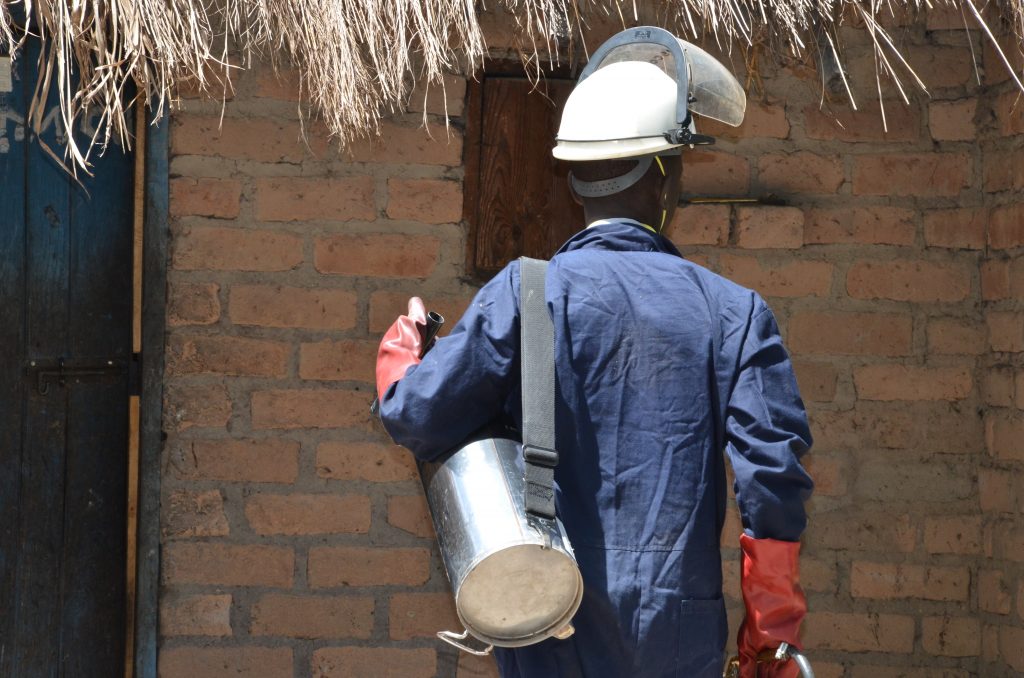Experts predict that if malaria prevention and control activities are disrupted by the COVID-19 pandemic, malaria cases and deaths could double this year and already fragile health systems could quickly be overwhelmed. That’s why the U.S. President’s Malaria Initiative’s (PMI) VectorLink Project has moved forward with indoor residual spray (IRS) campaigns, using new PMI and global guidance to safely and effectively deliver malaria programs during COVID-19.
During an IRS campaign, spray operators enter homes to apply insecticide to the walls and ceilings in order to protect families from mosquitoes that transmit malaria. With the rapid spread of COVID-19, PMI VectorLink took swift action, adapting its IRS programs to ensure its training programs, operations, community mobilization, monitoring and evaluation follow the new guidance to protect staff and the community.
IRS campaigns are currently underway in Benin and Ghana. Other campaigns are planned for Burkina Faso, Ethiopia, Senegal, and Uganda in the coming months.
In all its IRS campaigns, PMI VectorLink adheres to existing standard environmental and safety compliance measures. In the face of COVID-19, additional protection measures now include increasing the number of handwashing stations for frontline workers and providing bleach and sanitizer for disinfecting vehicles and doorknobs. Posters, text messages, and job aids at meetings also remind operators to take COVID-19 precautions. Workers now must be vigilant in social distancing, always staying six feet apart – from the morning meeting, to all day in the field, to end-of-day clean-up. In Benin, in order to avoid congestion in washing areas, spray operators no longer clean their own equipment and gear at the end of the day but instead the task is left to designated washers.
PMI VectorLink is in regular contact with the district representatives to obtain the latest information on the evolving situation and keeps officials updated on spray progress. In the event that a PMI VectorLink worker tests positive for COVID-19 at a health center, district disease control and environmental health officers would be informed and provide directives on care and protection. Additionally, workers will be paid for missed days of work.
In Ghana, a village chief did not want to allow strangers into the community due to the pandemic. However, after PMI VectorLink explained the importance of malaria control and the measures being taken to protect against COVID-19, the village chief allowed the community to be sprayed. He understood that ensuring important malaria prevention activities like IRS could continue safely would protect his village and save many lives.
PMI VectorLink’s rapid adaptation of activities to comply with global guidelines allows countries to safely continue moving toward the goal to end malaria. In 2020, PMI VectorLink plans to lead IRS campaigns across 17 countries in Africa, protecting an estimated 21 million people.

